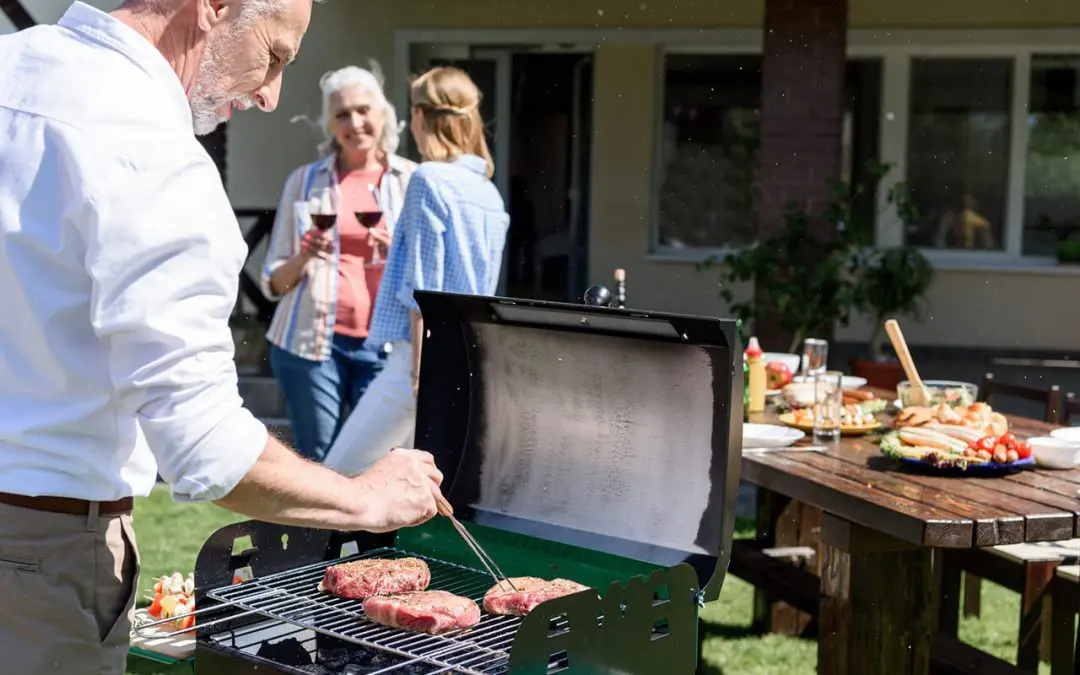Grilling Safety Tips
Start with a Clean Grill
According to the NFPA, 29% of grills that started structural fires hadn’t been cleaned before use. One of the most essential grilling safety tips is to clean your grill regularly.
Make sure the grill and the tray beneath it are free of fat and grease buildup. Use a hard wire brush dipped into a bucket of warm water and grease-cutting dish soap to effectively clean gas and charcoal grills.
Grilling Safety Means Cooking Away from the House and Other Structures
Set your grill up at least 10 feet away from any structures, such as your home, covered porches, garages, and carports. Be mindful of overhanging tree branches and canopies as well. Make sure the grill is on a flat, stable surface. Invest in a grill mat if your setup is on a wooden deck rather than a concrete or brick patio.
Be Prepared
Grilling safely means having safety essentials on hand. Be prepared to put out small fires when using your grill. Have an extinguisher within a few feet of your cooking area in case of an emergency. Learn to use the extinguisher before you need it. If flames get out of control, call 911 for help.
Never use water on a grease fire. Baking soda or sand can be used to extinguish grease fires.
Ignite the Grill Safely
Starting your grill correctly helps you keep you and your guests safe. Always keep the lid open when you light your gas grill to allow excess gas to escape.
Use a charcoal chimney to start your charcoal grill. A chimney is safer because you don’t have to use lighter fluid. Don’t forget to put the chimney in a safe place after you’re finished using it; it will need time to cool down.
Grilling Safety: Shut Down the Grill Properly
If you are using a gas grill, disconnect the propane tank and move it to a safe place away from the grill. If you’re using a charcoal grill, wait at least 48 hours to allow the coals to cool completely before you dispose of them, preferably in a metal container.
Check for Gas Leaks
Check for gas leaks before using your gas grill and anytime after you change the hose or propane tank. To check for gas leaks, mix equal parts water and liquid soap, and use a soft-bristled brush or spray bottle to apply the mixture to the hose and the valve where it connects to the propane tank. Turn the gas on. If bubbles appear, you have a gas leak. Tighten the connection, replace the hose if necessary, and repeat the test.
A grill is great for making delicious meals in warm weather. Use these grilling safety tips to protect your home, family, and pets every time you grill.
Jamie Schaefer Professional Home Inspector provides inspection services to the New York Metro area. Contact us to schedule an appointment.

